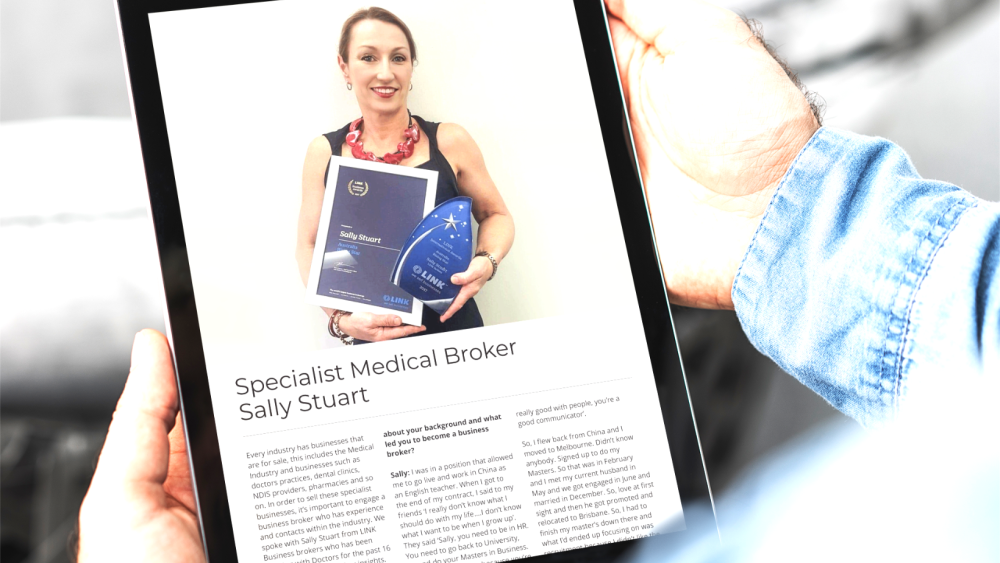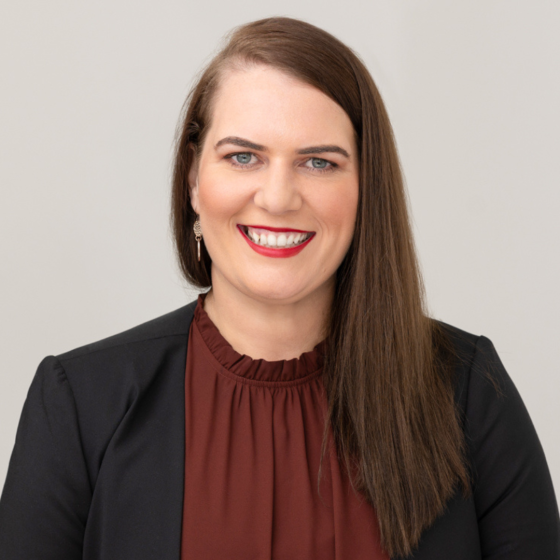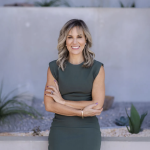Meet The Specialist Medical Broker Sally Stuart

Selling a medical or dental practice takes knowledge and experience. Understanding your clients, and their needs and having regular contact within the industry is important to a successful sale. We speak with Sally Stuart who is a specialised business broker and can assist doctors, physicians, dentists and allied health professionals in selling and buying medical businesses for sale in Sydney.
It’s important to engage a professional business broker who has the experience, Sally Stuart from LINK Business Brokers Sydney has been working with Doctors for the past 16 years and she offered her insights.
Background
Vanessa: Hi Sally, so tell me a bit about your background and what led you to become a business broker?
Sally: I was in a position that allowed me to go live and work in China as an English teacher. When I got to the end of my contract, I said to my friends ‘I really don’t know what I should do with my life….I don’t know what I want to be when I grow up’. They said ‘Sally, you need to be in HR. You need to go back to University, go and do your Masters in Business. Become a HR person because you’re really good with people, you’re a good communicator’.
So, I did all the training and got the required registrations to become a business broker about 7 years ago. I’ve been working with doctors for 16 years and I’ve been working with doctors as a business broker for the last seven years. So, I’m very much in the health space. I only support owners of medical, dental, allied health, NDIS and aged care businesses with the sale of their business.
Specialized Medical Business Broker
Vanessa: If someone is going to be a specialized broker, should they have experience in that industry?
Sally: I think it gives you credibility and when you get credibility, you get trust. I try to add value along the way, it’s not just about the transaction. Busines owners have got to trust you. We’re told it takes 11 touch points for people to connect with you. I’ve got to do a lot of ‘value adding’ before anyone will trust me. Buying or selling business is one of the biggest decisions that people are potentially going to make in their lifetime. By having credibility, such as knowledge about who can work where, who can bill through Medicare at which level, what restrictions they have if they are overseas trained doctors such as 19AA of the Health Act, what 3GA training programs they can get into while they’re still restricted etc, it is helpful in gaining the trust. So, yes, having working industry knowledge is definitely an assistance.
Vanessa: Do you have a lot of contact with people within the medical industry. Is this important?
Sally: 100%. I have to really work hard. I’m constantly talking to people. I call every single buyer that comes to me. I talk to them. I find out their backstory. I find out what their goals are, and then I talk to them every month. With regards to vendors, I go to practice owners’ conferences, and host summits, plus I get involved with in-person education events. I try to be the person that is in their mind when they think about selling. You can’t do that without connecting with future vendors on an ongoing basis.
It also allows me to support my fees as I say to people, ‘I can’t talk to you about garage doors or electrical engineering; but I can talk a lot about health. If that’s what you want and if you can see value in me being involved with this industry for the last 16 years, then that’s what I’m happy to bring to the table when I work for you’. So, I think it’s a nobrainer. Why would you go with a generalist broker when there’s a specialist broker who’s happy to bend over backwards and make everything happen as seamlessly and effortlessly as possible.
Understanding your Clients
Vanessa: I imagine a lot of Doctors are nearing retirement. Are there enough medical businesses for sale?
Sally: So, at the start of this year I thought we were going to see a ‘Baby Boomer Tsunami’. I was all ready to be busy and I’d organized a PA to help me. Then we got hit with COVID. We saw some of the older baby boomers close up and walk away because they felt that they’d worked hard all of their life for their patients and were just not prepared at their age and stage of life to get unwell; potentially not be able to retire and enjoy what they’d worked so hard for. Some of them just shut up shop.
Vanessa: Is there much value in a medical practice that has only one doctor, who has been operating for the past 30 years?
Sally: If that doctor goes, then as you’ve identified, the goodwill in that practice is likely to go as people will go to a clinic that’s closer or easier for them to access. In most cases, there is someone who is keen to buy. I sold a clinic early this year out in Western Sydney. We got $50,000 for the vendor. He saw the value in being able to say farewell to his patients that he had been treating for decades and took comfort that their patients were going to be treated by a safe pair of hands. Every solo practice I advise on the range price, but it also depends on what else is included in the sale. With the practice sale I was referring to, there was another level in the building which wasn’t being utilized which the new buyer also wanted to lease. So, generally there’ll be another reason why a buyer will buy; it’s not just this small amount of goodwill that they’re paying for.
Vanessa: Is it hard for the new doctor or dentist to gain that patient trust? Is there a transition process?
Sally: Doctors are terrified of retiring and I’ve got some doctors that are still 85 and practicing. A lot of doctors say to me ‘I’ve just had enough of all the administrative requirements to manage my practice. I still love my patients. I still love practicing medicine. So, what I’d like to do is to stay on as a clinician but not have to do the managerial side of the business. A lot of the times I see doctors will happily transition for three to five years and that way, it’s very easy to implement a ‘shared caring’ model. If a patients come in one day and their traditional GP is not there, the new doctors is there and can treat; letting the patient know that next time they come, their old GP will probably be there. Certainly, there are a lot of transitional arrangements that are made with a medical practitioner whose intent is to transition from working life to retirement.
Most doctors decided on their career path when they were probably 15 or 16 years old. They decided that a doctor was what they wanted to be. They had to get the very best numbers in high school, then they had to get entrance into University. Then they had to be the very best that they could be to get accepted to study medicine. Then they had to get into a Fellowship training programs … they are always competing to be the best doctor that they can be as a lifelong learner. So, they don’t want to walk away from their longlife training and their life’s calling. A lot of them say they have a calling to be a clinician and they love their patients, and they love the practice of medicine. So, we do have a lot of people stay on and transition over a long period of time. If they’re unwell or for whatever reason, maybe their spouses aren’t well, it’ll be a short transition. But generally, the clinicians are very aware that the goodwill stays with them and that it’s really important to do a solid transition period.
Search Businesses For Sale
Medical Practice Business for Sale
Vanessa: What happens with a new physician if they don’t have any sort of business knowledge or know how to run the clinic?
Sally: In the six years at University, doctors don’t do a single business unit. Usually, the practice will be set up and all the systems and processes will be in place because a lot of the practices that I sell are accredited, which means they are eligible for the government incentives. They have to have the processes and procedures in place, booklets need to be available to the staff about these and everything has to be documented. So, usually with the larger practices, there is a senior receptionist or a practice manager that is very aware of all this work. Just literally an hour ago, I was talking to a business owner who has created this amazing software that will integrate fully with Best Practice management software and up to 80% of the processes can be automated. There’s so much technology at the moment that is being created that will allow clinicians with not great business acumen to be able, at a glance, to see what their financials are looking like. They can measure 1x GP against another in terms of the efficiencies and effectiveness of their billings. So, it also allows for better management of the GPs in the team because the GP owner can pull up a report from this software that says, today you’ve got 17 patients booked in, 7 of them are eligible to have their care plans, and the nurse will be scheduled to be available for those. So, instead of that patient being charged a rate of an item 23 consult, which might be $35, undertaking a care plan with a nurse means that the practice bills a 700 item number that might be an hour and a half with a clinician. The patient billings are going to be significantly higher; the profitability of the practice is going to be higher and then come sale time, the sales price is going to be significantly higher. So, there’s a lot of technology available for clinicians now, to help them mitigate the lack of business training
Part of my role as a business broker is to add value. One of the ways I do that is by running summits. In October this year, I had 310 registered buyers sign up for my 2x week summit. I introduced them to 8x trusted advisors that they need to have on their buying team. I introduced them to consultants that can assist in the growth and development of the clinic, in the nonclinical arena. If the clinicians don’t feel confident and comfortable to run a business, then I would introduce that person to a trusted business advisor that could assist. So, I’m trying to become a one-stop-shop for my owners and my sellers. So, if they come to me, they know that in any stage of the process, I’ll be able to introduce them to somebody that will make their commercial life easier.
Buying an Established Medical Business vs Starting
Vanessa: What are the other advantages to buying an established medical practice versus starting your own?
Sally: Income. So, if you’ve got no patients, you’ve got no income ….and doctors usually have massive debts! My stepson is just finishing his internship now and he’s just done seven years of training. So for seven years, they don’t have any money and then they develop this mentality of being frugal; watching every penny that they make. When you say to somebody ‘you’re not going to have any income until you build up a patient base’ they choose to buy a business because the patient base is there, systems and processes are there, the staff are there, the marketing is in place, everything’s done and the clinician effectively just has to move in, change their access to the software and then they can take over. Some of them can walk into a full patient load so they might be working straight away 50 hours a week seeing up to 50 patients a day and you can’t get that income, if you start up from scratch. This means that you can’t pay your school kids fees, you can’t pay your mortgage, you can’t give your spouse whatever is needed to run the house
Vanessa: Is there a trend of doctors owning more than one medical practice?
Sally: I would say definitely a trend. Yes, that’s a good point. I see more and more clinicians becoming more entrepreneurial and being able to have the business acumen to own and manage multiple clinics because there’s only so much you can do if you’re one practitioner working 40 hours a week seeing patients. You’re capping your own income because the legislation and the powers-that-be limit doctors if they are seeing more than 50 patients per day 80% of the time. They get audited to understand what sort of practice the clinician is running. Is it a safe practice? Is the patient care being impacted because of the numbers of patients each doctor is seeing? So, they are literally capped at the number of patients, which means that the income is capped if all they’re doing is seeing patients. So, clinicians see having multiple practices or growing and scaling their own practice as the sensible continuation of their empire building; thereby growing the income for them, for their families and their future
We are seeing a lot of entrepreneurial doctors that are looking to build their own businesses. Doctors don’t have one unit in 6 or 7 years of training in business and then they say, I want to own a business. For them, it’s really challenging. Some of them embrace it exceedingly well. Some of them are very entrepreneurial, very switched on from a business perspective. Others, if they are lucky, are married or have a close relationship and association with someone who can help them with the business side of practice ownership. But there are some doctors out there who are outstanding and very entrepreneurial. Some doctors that I support have got around 27 practices and they’re not corporate entities. These are independent, privately-owned groups of clinics. The practitioner may choose to float them in the future, but the couple of practice owners that I’m thinking about, have done it organically. One by one, they bought practices. They sell the ones that are underperforming and continue to grow, put systems in place, put good people in place, and embrace the lean technologies that we have coming out. They really look at growing their businesses, but still they need to practice about 23 hours a week clinically in order to maintain their registration. So, it’s a fine line between building an empire, maintaining your clinical hours in terms of maintaining registration and your work/life balance. But certainly, there’s a lot of very entrepreneurial people out there. There are consultants as well that can give assistance, so there’s groups that business owners can join. Dr Todd Cameron is an amazing mentor for so many practice owners in scaling their practice. He teaches the tips and the tricks that he has implemented into his own practices and he shares that with other clinicians. Dr April Armstrong is another entrepreneurial doctor who supports a massive Facebook group called BFD (Business for doctors). She uses her massive numbers of followers for education, group learnings in a safe environment and business savings through buying power.
How do Doctors Sell Their Medical Practice?
Vanessa: When the time comes for a Doctor to sell, are there benefits to owning multiple practices?
Sally: I’ve got a lady looking to sell five practices at the moment. She’ll get a much higher multiple on that business sale than she would if she sold five practices individually. What we saw earlier this year was the sale of Healius, which is the second largest corporate in Australia. They sold at a profit multiple of around 13.11 times the real profit. That’s only because they were a group and it’s easier to acquire a group than to individually buy 30 to 40 practices individually.
Vanessa: Is there an ideal time for a Doctor to sell?
Sally: I had a doctor tell me his wife told him that he had to sell his business when it was at its peak. I think that’s very solid advice. You don’t want to wait until your health is declining or you died at the wrong stage in your life. I think it’s really important to start with the end in sight. It’s important to have a goal in mind because without a goal …. you can’t achieve it. When I’m selling a practice, I have a conversation with the business owner about what they want to achieve, how much money they want to make and how we can get the practice more profitable, add value and get it ready for sale. Then throughout the sale, I continue to link their goals to whatever is happening in the process.
Vanessa: How long does it take to get the business ready for sale, find a buyer and finalize the sale?
Sally: It can take three months if it is easy; it doesn’t have to be long and drawn out process. Somebody approached me not long ago with one business in Sydney and one up on the Central Coast. They’re both run under the same ABN with all the income and expenses in the same financial document. That’s a tricky situation because people like to see exactly what it is they’re buying. I indicated a need to separate the financials, get another ABN created and to fully separate the 2x businesses. If it’s a business like that, there’s some lead time required.
I’ve got another practice that I’m selling in South Australia, but they only opened in July and they want me to sell the business. You need to have time for the business to get runs on the board, people don’t want a new practice…they want an established business with goodwill. They want to have an established patient base. They want to have all the systems and processes in place. They want to have clean financials. They want to have stable staff. That’s another thing, if your practice manager has just left and you’re still recruiting then that’s a tricky period to get through. You probably should look at taking your business off the market for three to six months while you get that person embedded and comfortable in their role before we bring it back to the market again. As soon as they see high staff turnover, it’s a red flag for a buyer. We’ve got nine steps to sell a business. Grooming the business for sale is one of the first steps. It’s not just financial but physical as well, so they need to make sure it looks great and presents well. It’s like selling a home. I walked into a clinic the other day. The dental chair was in about 1000 pieces and I asked, ‘how can I sell this?’ If the practice looks great, if the financials look great, it’s so much easier to sell. So, in answer to your question, it depends on the business. It can take me only three months if I’ve got a great practice and a willing buyer, willing seller. If I need to do a lot of grooming, if I need to get financials in order, if it needs a renovation, if we need to recruit staff and/or doctors, then there’s all that extra lead time.
Vanessa: In the terms of buying a dental clinic, how is the equipment factored into the price?
Sally: Doctors really just need a stethoscope plus a blood pressure monitor and they are good to go. With medical, dental and vet businesses, the practitioners are eligible to get up to 100% finance. So, generally they don’t need money for deposit. The financiers will give them operating money as well as purchase money. They can get separate loans for equipment. Currently until June 2022, we have the instant asset write-off. Professionals, like the dentists are being encouraged to invest in equipment, or to upgrade their existing equipment They can always get the funding through one of the finance companies. So, we have got the likes of Credabl, BOQ Specialists, MedFin, Macquarie Health, ANZ Health and Westpac Health. These companies are all competing with each other to give money away. The dentists have a different billing rate as well. With the GP fee splits, the doctor will get up to 70% of the patient billing, 30% goes to the practice owner and then it’s the reverse with dental clinics. The practitioner will get say 35-40% of the billing and the rest will go to the practice owner because of the high expense required to buy and install equipment for them to be able to operate with. Dental multiples are generally higher as a reflection of the higher costs of the equipment. Having said that, with the instant asset write-off between now and June 2022, a lot of depreciation will be claimed and tax minimized. Therefore, any practices that sell between now and then potentially won’t have a lot of value with their plant and equipment remaining because it will have already been depreciated. Please seek an accountant for accounting advise around this.
Vanessa: How did COVID impact your clients?
Sally: The dentists did have to close. They couldn’t perform any procedures. Restrictions were gradually eased. With doctors, telemedicine was introduced. For a lot of the older patients, they go to see their doctor and it’s also a social outing as well as a medical trip. Some patients suffered as a result of the missed socialization. Practitioners suffered as well with being locked away from their patients. It’s hard to do a consult over the phone! For clinic visits, where the patients had to come in, the clinics were very much reduced in capacity, especially in the waiting room. But the flip side of that is the clinicians and patients learned additional skills. With telemedicine they could work from home and see a Dr from home.
What are the Current Market Conditions?
Vanessa: Is it a buyers’ or sellers’ market at the moment?
Sally: It’s definitely a sellers’ market. I’ve got a lot more buyers than sellers. I’ve got over 2000 registered buyers currently in my data base. We’re getting multiple offers on every business, so it’s definitely a seller’s market. The unfortunate thing is that potential vendors are getting some misinformation from their accountants. Accountants have a financially vested reason for them not to sell their business. The accountants are saying ‘no, no, no… don’t sell, don’t sell. It’s COVID. You know, you won’t get the real money for your business.’ Whereas now’s the best time in the history of the world to sell a business because brokers haven’t got comparable sales to refer to. There’s a surge in buyers as they’re looking to have protected income as they can’t rely on the employer anymore. In addition, we’ve got all of this money that’s being released from the government. From a risk perspective, it’s pretty low as interest on loans is at an all-time low. 0.1% is the interest rate from the RBA as at the 3rd of November. So it’s a great time to go into business and there’s a lot of people that are looking for businesses. I’ve got a lot of people looking for quality businesses, but the challenge is trying to find those. That’s what I need … more quality health businesses to bring to this hungry market.
Similar Articles
My Business is Closed Now What?
6 Businesses For Sale in Sydney under $100,000
What does Sydney Traffic mean for business owners
About the author

Vanessa Lovie
CEO Bsale Australia
Vanessa is the current manager and CEO of Bsale Australia. Over the past 11 years as a business owner, she understands what it takes to grow a ...





